We all know chickens go through a molt every year, but did you ever wonder “do ducks molt?” Duck molting is indeed a thing!
In fact, they molt quite a bit every year – possibly enough to build you a whole new duck.
In fact, I’ve gone outside and wondered whether the drakes, hens, and young ones had a pillow fight the night before and didn’t invite me!
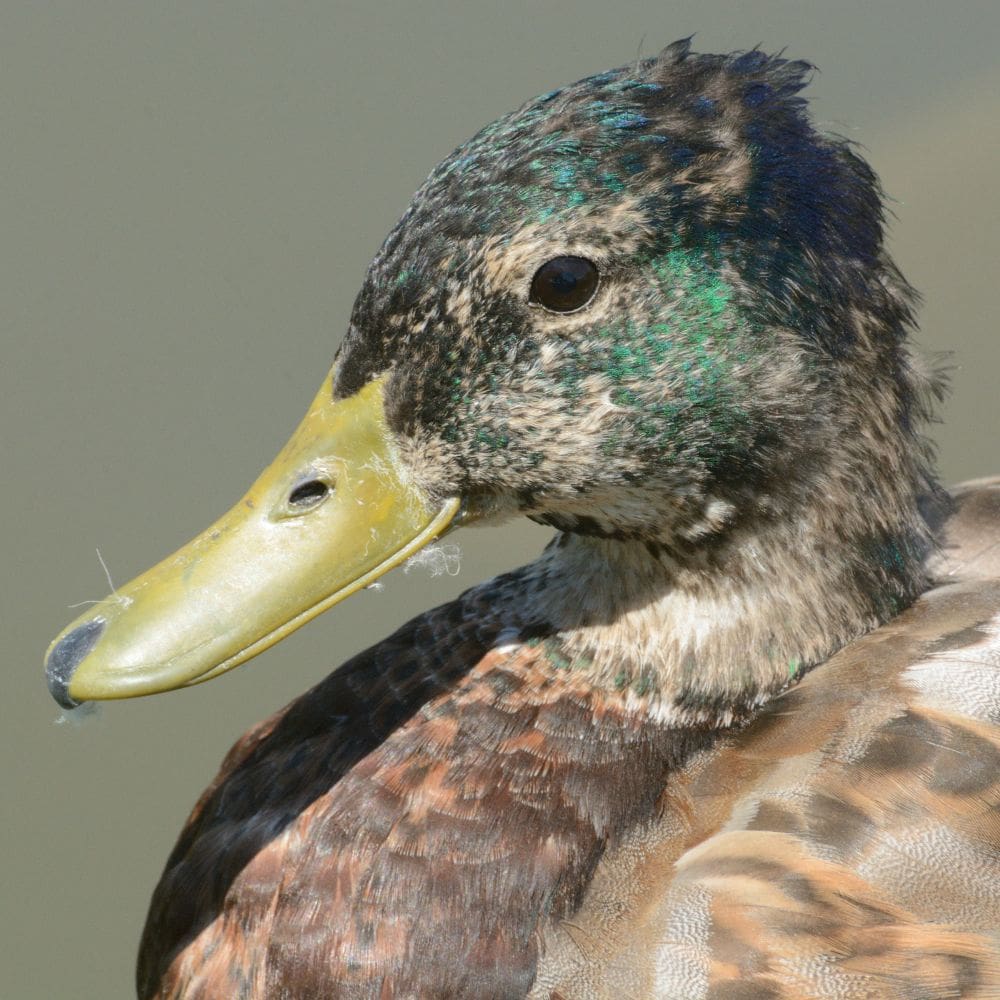
You might even wonder how such a little bird can have so many feathers hidden – more on that in a minute.
Our hen Henrietta, a Khaki Campbell is molting presently – and she looks quite a bit disheveled. Not sleek and bright like the younger ducks in her pen!
Like chicken molting, ducks molt to replace old feathers with new feather growth, and they do it every summer. So, expect it to be an annual event.
Table of Contents (Quickly Jump To Information)
How do ducks molt?
Ducks molt differently than chickens, and in the main summer molt, both duck hens and drakes will lose feathers.
Chickens molt by losing them on their head, neck, and back, and then regrowing them in the same top-down pattern.
Ducks, on the other hand, just lose their feathers all over the place and all at once, including their primary ones. They’ll also scratch and pluck them out with their bills to speed things along or just relieve the itch.
Henrietta has been caught with bits of plumage all over her bill – she dunks herself in water to clean it off!
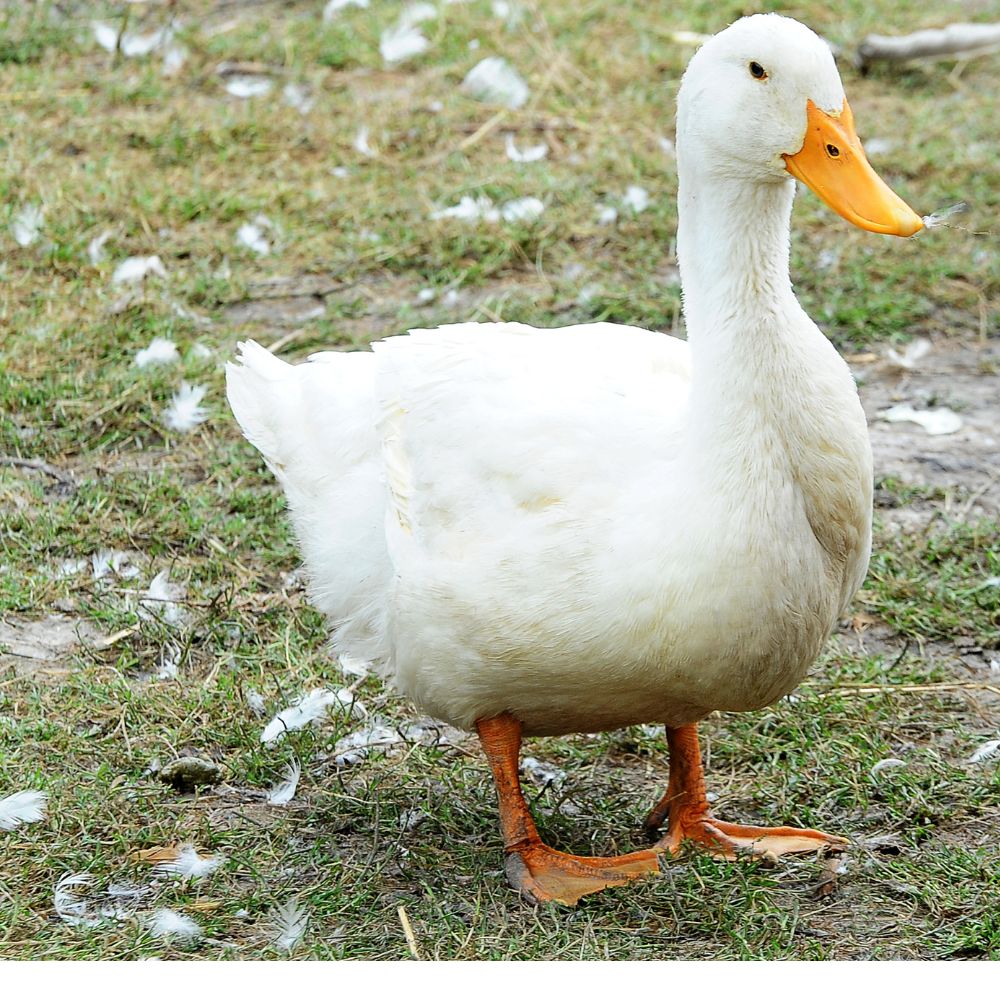
You might also notice your ducks aren’t playing or interacting as much – again, this is normal. Henrietta has been staying a bit back from the younger ducks as she loses her feathers.
Additionally, drakes (male ducks) will undergo an additional molt after the spring breeding season has ended – they will lose their fancy-colored plumage for duller-colored feathers. The purpose of this in the wild is to help waterfowl stay safe from predators (as a bit of camouflage).
Why do they lose so many feathers?
As you probably know, in addition to their primary plumage, ducks also have a significant downy undercoat. This downy is the same down you’ll find in coats and pillows.
So, ducks will also lose their down during a molt, which is why it can look like a crime scene in their pen – and you might take a headcount, wondering how a predator got into the duck house.
Rest assured, it’s just natural feather loss.
In fact, ducks lose their primary feathers (such as flight feathers) all at once. In the wild, they will be flightless for about a month – no big deal since ducks are usually close to water, keeping them safe from predators.
This is less of an issue for domestic ducks, although the sight of it can be overwhelming. Just grab the broom and sweep them out. Your sweet little pet ducks will be just fine.
As Henrietta has molted, she looks very disheveled, and her color appears mottled – this is a result of losing feathers as well as loose ones that haven’t yet been shed.
Eventually, glossy new plumage will appear, and the ragged hen will look sleek and beautiful again. Just remember, that the length of time it takes to complete a molt will vary from duck to duck.
What about egg production?
While your female ducks molt, you might notice the hens’ egg production goes down – this is normal. Like chickens, growing new feathers is hard on the duck’s body and requires a lot of protein for ducks.
We’ve noticed that Henrietta is egg-laying less, and when she does lay an egg, they’re smaller. Again, this is totally normal, and once she’s done molting, production picks back up.
If your ducks stop laying completely, you still don’t need to worry – it’s normal, and they’ll start again eventually.
What should you feed during duck molting?
When your ducks molt, it’s a good idea to give them extra protein. The first thing to be sure of is that they are eating high-quality feed with excellent ingredients. Here is our special blend.
Beyond that, you can give them extra feed during their molt, or offer treats of dried mealworms floating on water (it also provides extra entertainment). Giving them high-nutrient treats such as kale or parsley will help as well.
If they can have access to a pond or are able to free-range some they can also get extra protein by eating bugs.
You can also switch to a higher protein feed if needed.
Can’t feather loss indicate parasites?
Yes, this is true. However, if your duck has parasites (like lice or mites) the feather loss will likely be in patches and not a full-body experience. The interesting thing is that molting helps reduce the chance of parasites as the feathers shed and renew.
If you are worried about this, just be sure to spread out your duck’s feathers and look for raw spots, crusty areas, and actual bugs.
Summary
If your flock is going through a major molt, I know it can be a frightening sight. Seeing your hen’s plumage go from amazing to frazzled is not necessarily fun. Just remember it’s a natural part of duck life, a renewal of sorts. Althought there is no way to determine exactly how long it will last, it usually only lasts about 2-3 weeks.
Just be sure to give your sweet quacks some extra protein rich treats along with extra love.
Additional Duck Articles
- Do Muscovy Ducks Make Great Pets?
- Magpie Ducks – The James Bond of Ducks
- Pet Ducks – Good or Bad Idea?
- Cayuga Duck – Ultra Cool Duck Breed
- How Long Do Ducks Live?
- What Do Baby Ducklings Eat? Ultimate List Of Treats, Feed, Fruits, & Vegetables
Maat van Uitert is a backyard chicken and sustainable living expert. She is also the author of Chickens: Naturally Raising A Sustainable Flock, which was a best seller in it’s Amazon category. Maat has been featured on NBC, CBS, AOL Finance, Community Chickens, the Huffington Post, Chickens magazine, Backyard Poultry, and Countryside Magazine. She lives on her farm in Southeast Missouri with her husband, two children, and about a million chickens and ducks. You can follow Maat on Facebook here and Instagram here.

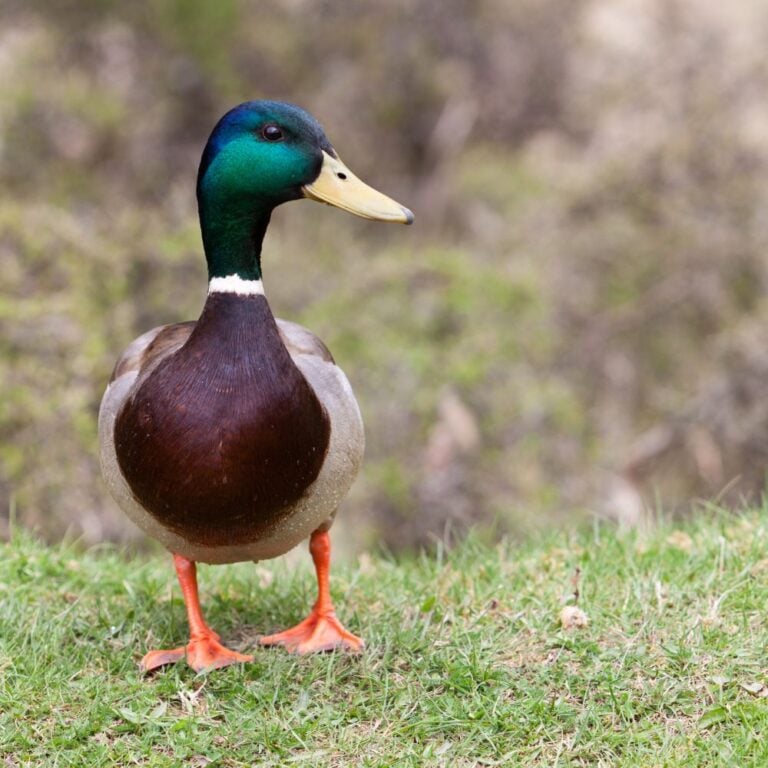
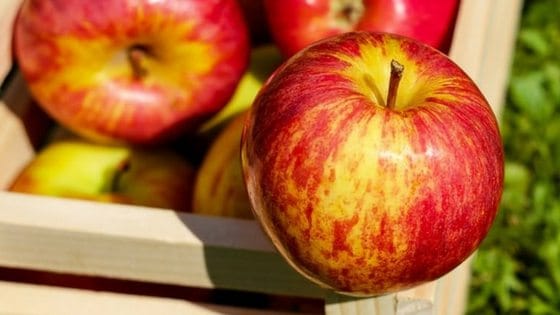
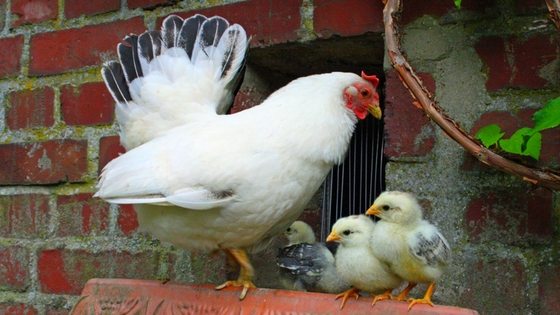
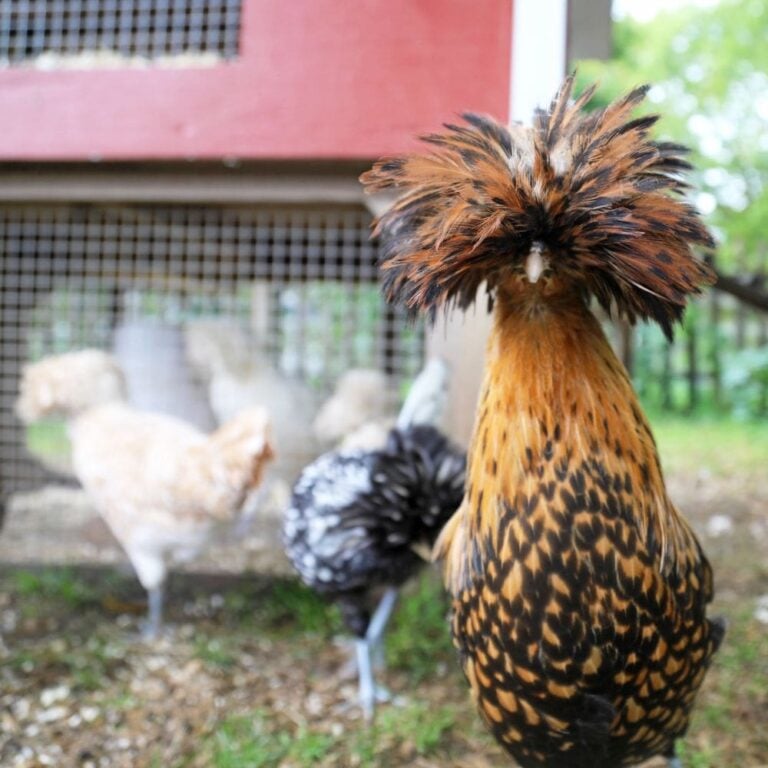
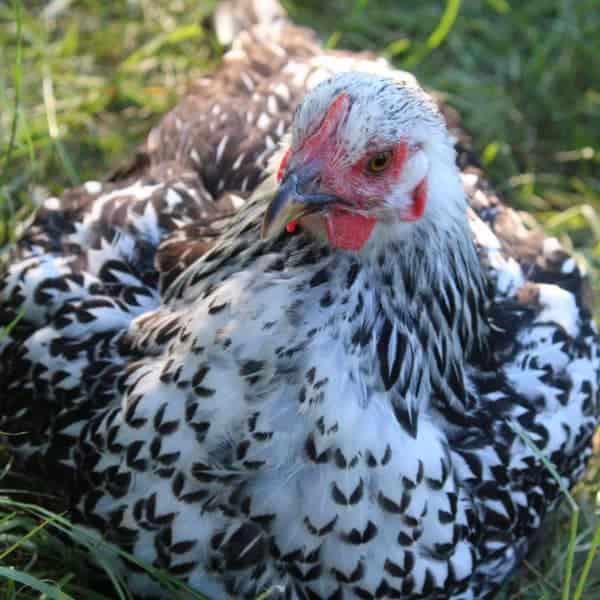
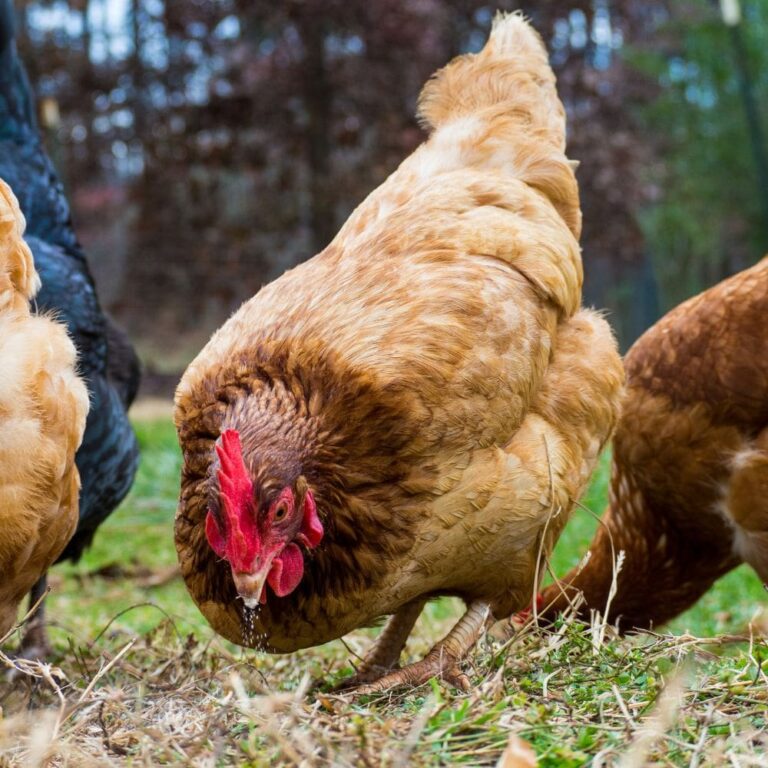
I have learned so much from for emails & blog site I love my chickens& you have helped me to solve so many questions that were unresolved in my head. Thank you so very much. I want to get started using essential oils in my home & for my chickens. I’m disabled & I think the oils will help me out teraputicly,but also get rid of the harsh chemicals I use in my home, that in itself would make me feel better. I’m on a low fixed income so could you help me in picking the oils to start with for me & my chickens then progress from there? Thank you so Much,Herdy Bell
Hi Herdy, the Young Living Premium Essentials kit is what I usually recommend to get started – it has everything including oils for cleaning, peppermint for coop cleaning, etc. You can find it at https://thefrugalchicken.com/essemtial-oils. You can buy all the components separately, but you’ll end up paying more. I got my kit free, if you’re interested in learning how I did that, you can email me at editor@thefrugalchicken.com and I can give you the details. I hope this helps – essential oils make healthy living really easy and convenient.